Bathtub Murder in Nakuru: Husband Staged Wife’s Death and Tried to Alter Autopsy

Nicholas Koskei, a former employee of the United Nations in Nairobi, has been convicted of the premeditated murder of his wife, Rhoda Mumbi.
The crime occurred in July 2017 during what was purported to be a romantic weekend getaway at the Jacaranda Lake Elementaita Lodge in Gilgil, Nakuru County. The conviction followed a meticulous investigation that uncovered Koskei's elaborate plot to kill his wife and stage the scene to implicate her in substance abuse. The prosecution presented compelling evidence demonstrating that Koskei had meticulously planned the murder, leading to the court's guilty verdict. Koskei now awaits sentencing.
The facade of a happy marriage between Nicholas Koskei and Rhoda Mumbi, both of whom held stable positions at the United Nations in Nairobi, began to crumble in 2017. Suspicions of infidelity on Koskei's part had created significant tensions in their relationship. Unable to reconcile their differences, Koskei devised a deadly plan during a weekend trip to the Jacaranda Lake Elementaita Lodge. According to court documents, Koskei and Mumbi's relationship began years earlier at the UN.
Koskei claimed to have played a role in furthering Mumbi’s education. Witnesses gave conflicting accounts, with some describing them as a happy couple, while others noted that cracks had begun to surface in their marriage. One notable sign was Koskei’s frequent late-night arrivals home, which led Mumbi to suspect he was involved in an extramarital affair. These suspicions led to confrontations between the couple. Despite these underlying tensions, Koskei planned the trip three days in advance, contacting the hotel to reserve a double room, specifically requesting one with a bathtub—his wife’s preference.
On the same day, Mumbi called her sister, requesting that she watch over their children while she travelled. The couple arrived at the lodge at approximately 3:20 p.m. on July 8, 2017, checking into room number 17. Koskei shared images of their stay in the family WhatsApp group, reinforcing the illusion of an ordinary vacation. Later that evening, they spent time by the pool, where Koskei ordered two bottles of beer, though Mumbi declined any alcoholic beverages. By 6:45 p.m., they proceeded to their room.
At 9 p.m., Koskei strangled his wife and placed her in the bathtub, staging the scene to suggest she had overdosed. He then left the room, locking the door behind him under the pretense of going for a jog and ordering food. After a brief absence, he returned and sought assistance from hotel staff, claiming that his wife was not responding to his calls and that the door to their room was locked. Waiter Ambrose Mapesa testified about his interaction with Koskei shortly before the discovery.
“At around 9:30 p.m., I met Mr. Koskei at the terrace door. I asked him if they were ready for dinner, but he said he had been jogging. He appeared to be sweating and breathing heavily, wearing a grey T-shirt and blue jeans. I left him and went into the restaurant, only to return and find him in deep thought with his hands folded. He said he had tried calling his wife, but she was not responding,” Mapesa stated.
Hotel staff used a spare key to unlock the door and discovered Mumbi’s lifeless body in the bathtub. She was naked, and the bathtub was half-filled with clear water. The floor and bathmat were dry, and there was no detectable scent of soap. Beside her head was a glass containing an unidentified substance and a partially consumed bottle of Bailey’s liquor. A white substance oozed from her mouth.
Security guard Dalmas Kairish recounted the scene, describing how Koskei pushed the bathroom door open, peeped inside, and immediately stepped out, clutching his head in apparent shock. He fell to his knees, exclaiming that his wife had collapsed. He then sought confirmation from the security guard on whether she was breathing, appearing overcome with grief to the extent that the guard had to help steady him onto a chair.
Koskei subsequently contacted Mumbi’s cousin, Robinson Kirimi, at 2 a.m., informing him of an "accident" in Gilgil but withholding specific details. Investigators pieced together the events leading to Mumbi’s death, revealing inconsistencies in Koskei’s narrative. Inspector Rita Wanekaya noted his unease at the crime scene, describing his restless pacing as he alternated between standing, sitting, walking about the room, and lying on the bed with his head covered, while police secured the area.
The postmortem examination, conducted by government pathologist Dr. Dorothy Njeru, determined that Mumbi had died from asphyxia due to mechanical strangulation. There were no defensive wounds on her body, indicating that she did not resist her attacker. Dr. Njeru emphasised that self-strangulation was implausible, as loss of air would result in an inability to maintain grip. She stated that, in her 15 years of experience, she had never encountered a case of self-strangulation.
Court records revealed that, in the days following the murder, Koskei reached out to his relative, Dr. Isaac Micheni, seeking an urgent meeting. During the conversation, he inquired whether Dr. Micheni was acquainted with the pathologist scheduled to perform the postmortem examination. Koskei sought to create a narrative in which his wife's alleged drug addiction was the source of discord in their marriage, attempting to portray her substance use as a factor in her death.
The prosecution successfully demonstrated that Koskei had meticulously planned Mumbi’s murder, leading to his conviction. The court found him guilty, and he now awaits sentencing.

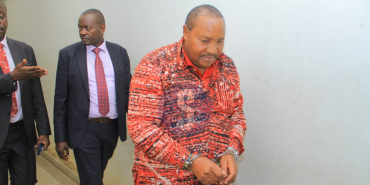
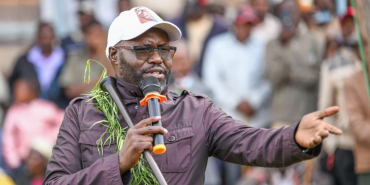


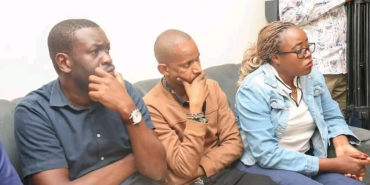
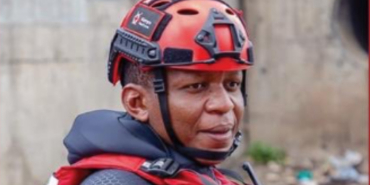
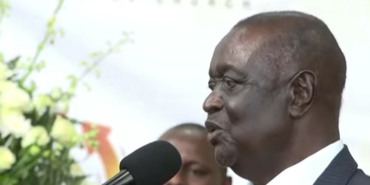

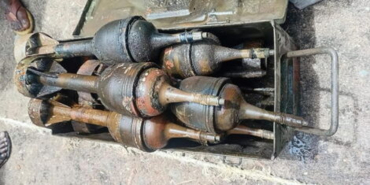




Comments
I wish all cases were…
Permalink
I wish all cases were handled like this in Kenya. Bravo to the investigators and for standing with your investigation. I bet most cases will have ended at the mention of the words "self-strangulation" case closed, divide the pie.
Add new comment